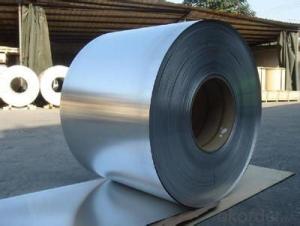Aluminum Rolls in Good quantity,SGS Can be Certificated
- Loading Port:
- Shanghai
- Payment Terms:
- TT OR LC
- Min Order Qty:
- 5 m.t.
- Supply Capability:
- 100000 m.t./month
OKorder Service Pledge
OKorder Financial Service
You Might Also Like
1.Structure of Aluminum Rolls in Good quantity:
Aluminum Rolls in Good quantity is designed for many field such as electronics, instruments, lighting decoration, packing industry, and house decoration, curtain wall, honeycomb-core panel, sandwich panel, aluminum composite panel, aluminum composite pipe etc.. Aluminum Rolls in Good quantity is hard and everlasting under the blazing sun. You can choose the alloys as your habitation and we will do our best to meet your requests.
2.Main Features of the Aluminum Rolls in Good quantity:
• Smooth surface
• High manufacturing accuracy
• High strength of extension and yield
• Well packaged
• No marks, no scratch, no excessive oil
3. Aluminum Rolls in Good quantity
Alloy: | AA1050, 1060, 1070, 1100, 3003, 3004, 3005, 3105, 5052, 5083, 5754, 8011, 8006 |
Temper: | H14, H16, H18, H22, H24, H26, H32, O/F |
Thickness: | 0.2-100mm |
Width: | 30mm-1700mm |
4. Usage of Aluminum Rolls in Good quantity
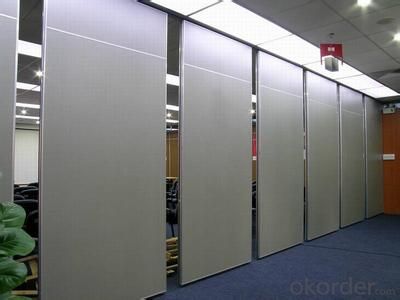
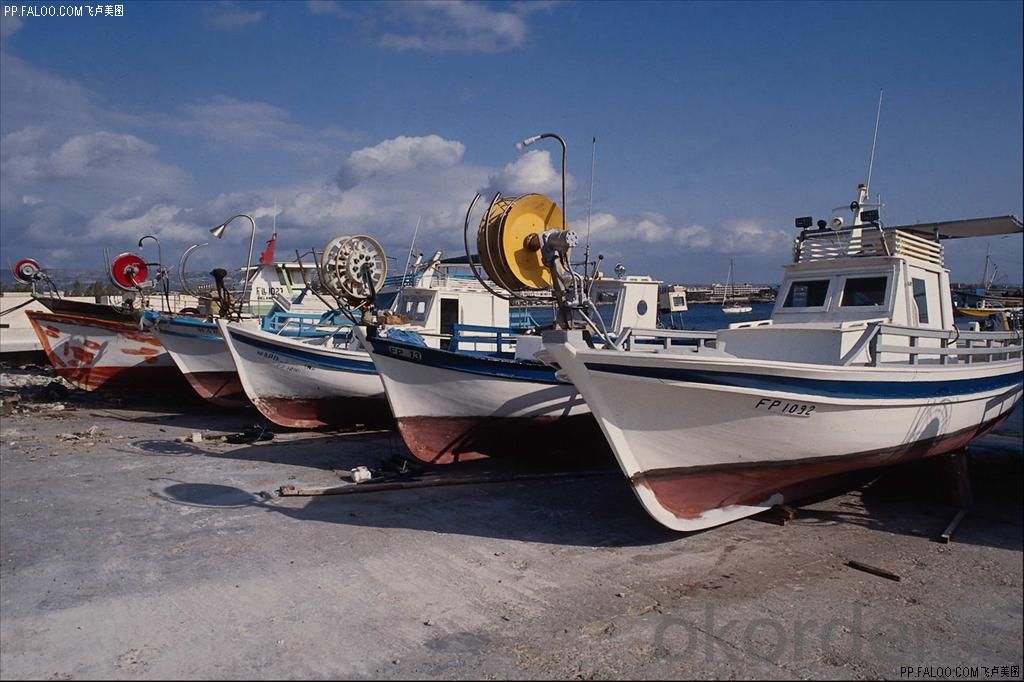
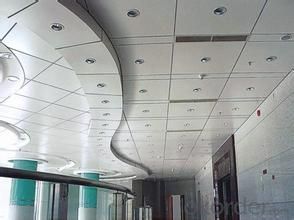
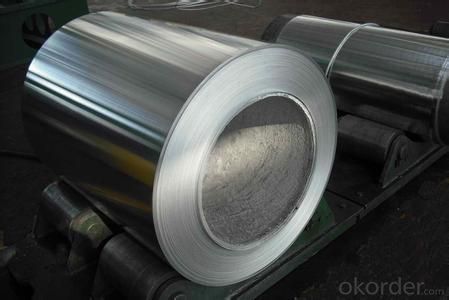
5.FAQ
We have organized several common questions for our clients,may help you sincerely:
① How about your company?
A world class manufacturer & supplier of aluminum coil and alloy blanks. Aluminum production base is comprised of 18 aluminum annealers, 10 coil and foil mills, 4 continuous production lines, 2 hot rolling production line and 3 prepainted lines.
Export 5000 tons per month to Asia, America and Middle East. Always do the best for our clients.
②Can you guarantee the quality of the products?
We are responsible for the quality of materials to get a long-term cooperation with clients in a reasonable period of time and we are glad to arrange and coordinate any third party inspection for you.
③What is the delivery time after purchase?
35 day after receiving client’s deposit or correct LC
- Q:like we have seen a disk of aluminum spinning, and a permanent magnet repell the plate because apparently because of temporary hystersis and because the north or south field causes the same in the aluminum, so why wont a plate of ruby do the same thing? Are not all metals, crystals? Perhaps its just too big and difficult a question for you simple huumans,..eh?
- A synthetic ruby may be made of aluminum, but that is not ALL that it is made of. The primary material in all rubies is aluminum oxide. So you need oxygen. It's not like the stuff is hard to find... they probably don't even need to overtly add it when they manufacture rubies. And of course, that creates a world of difference. Ferric oxide (a.k.a. rust) isn't magnetic either, even though iron is very strongly so. Aluminum is NOT naturally magnetic (though I'm sure it can be induced)... but if the parallel holds one might imagine that aluminum oxide would be just as nonmagnetic as ferric oxide, neh? As for metals being crystals... yes, that is so. But keep in mind also that just because all metals are crystals, it doesn't mean that all crystals are metals. Metals are (by definition) malleable, ductile, lustrous, and conductive. None of these things can be said of ALL crystals. Ruby may be a crystal, but it is not even vaguely a metal.
- Q:Are aluminum coils suitable for electrical conductivity?
- Yes, aluminum coils are suitable for electrical conductivity. Aluminum is a highly conductive material that has a conductivity rating of approximately 62% of the International Annealed Copper Standard (IACS). This makes aluminum coils an excellent choice for various electrical applications, including power transmission and distribution, electrical motors, and transformers. Additionally, aluminum coils offer advantages such as lightweight, high corrosion resistance, and lower cost compared to copper coils. However, it is important to note that aluminum has a lower conductivity than copper, so larger aluminum coils may be required to achieve the same level of conductivity as smaller copper coils. Overall, aluminum coils are a viable and commonly used option for electrical conductivity.
- Q:How do aluminum coils contribute to reduced maintenance costs?
- Aluminum coils contribute to reduced maintenance costs primarily due to their exceptional durability and resistance to corrosion. Unlike other metals, such as copper, aluminum coils are specifically designed to withstand harsh environmental conditions, including exposure to moisture, salt, and chemicals. This resistance to corrosion ensures that the coils remain intact and functional for extended periods, minimizing the need for frequent repairs or replacement. Additionally, aluminum coils are lightweight, making them easier to handle and install, which reduces labor costs associated with maintenance activities. Furthermore, their high thermal conductivity allows for efficient heat transfer, resulting in increased energy efficiency and lower utility bills. Overall, the use of aluminum coils in HVAC systems helps to reduce maintenance expenses and prolong the lifespan of the equipment, making them a cost-effective choice for both residential and commercial applications.
- Q:How are aluminum coils used in the production of solar panels?
- Aluminum coils are used in the production of solar panels primarily for the purpose of providing structural support and durability. These coils are often used as a backing material or frame for the solar cells, ensuring they are securely held together and protected from external elements. Additionally, aluminum coils are lightweight, corrosion-resistant, and easily malleable, making them an ideal choice for the manufacturing of solar panels.
- Q:How do aluminum coils contribute to energy-efficient HVAC systems?
- The role of aluminum coils in making HVAC systems energy-efficient is crucial. Firstly, aluminum is an exceptional heat conductor, enabling efficient heat transfer between different areas. In HVAC systems, aluminum coils are utilized in the condenser and evaporator units to facilitate the heat exchange process. In the condenser unit, the hot refrigerant vapor from the compressor passes through the aluminum coils. Due to the coils' high thermal conductivity, the heat is rapidly dissipated to the surrounding air, allowing the refrigerant to condense and release the heat energy. This effective heat transfer enhances the cooling performance of the HVAC system. Similarly, in the evaporator unit, the aluminum coils are responsible for absorbing heat from the indoor air. The cold refrigerant inside the coils absorbs the heat, resulting in the air cooling down. Ultimately, the cooled air is circulated back into the room. The superior thermal conductivity of aluminum enables quick heat absorption, improving the overall cooling efficiency of the HVAC system. Moreover, aluminum coils offer an energy-saving advantage by being lightweight. Compared to traditional copper coils, aluminum coils reduce the overall weight of the HVAC system. This weight reduction leads to lower energy consumption by the system's fan and compressor, as they require less effort to move the air and refrigerant throughout the system. Additionally, aluminum coils are highly resistant to corrosion, which prolongs the lifespan of the HVAC system. Corrosion can hinder heat transfer efficiency and result in refrigerant leaks, causing the system to consume more energy. By utilizing aluminum coils, the risk of corrosion is minimized, ensuring long-term energy efficiency. In conclusion, aluminum coils enhance the energy efficiency of HVAC systems by improving heat transfer efficiency, reducing overall system weight, and providing corrosion resistance. These factors collectively contribute to the effective operation of HVAC systems, consuming less energy while maintaining optimal indoor comfort.
- Q:what is the final temperature of 250g of water whose initial Temperature is 25 C if 80-g of aluminum initially at 70 C is dropped into the water? The specific heat of aluminum is 0.215 cal/C g how do you do it? our teacher did not show us how and it is not in the book
- Given Data :-- Mass : Aluminium m(a) = 80 g, Water m(w) = 250 g Initial Temperature : Aluminium t? = 70 C and Water t?' = 25 C Final Temperature of both ( aluminium and water ) = T C (assume) Since Aluminium is initially at a temperature higher than that of water, it (aluminium) will lose heat to water . Heat lost by Al = Q = mass of Aluminium x sp.heat capacity of Aluminium x Temp. change = Q = 80 x 0.215 x ( 70 - T ) cal Heat gained by water = Q' = mass of water x sp.heat capacity of water x Temp. change = Q' = 250 x 1 x ( T - 25 ) According to principle of calorimetery . = Heat lost by aluminium = heat gained by water. = 250 x 1 x ( T - 25 ) = 80 x 0.215 x ( 70 - T ) = T = 27.9 C .... ( Rounded to one decimal place )...... Answer Answer .
- Q:Can aluminum coils be used in heat exchangers?
- Yes, aluminum coils can be used in heat exchangers. Aluminum is a popular choice for heat exchangers due to its excellent thermal conductivity and corrosion resistance. The high thermal conductivity of aluminum allows for efficient heat transfer, making it an ideal material for heat exchangers. Additionally, aluminum's corrosion resistance ensures that the coils will remain durable and functional even in harsh environments.
- Q:I want to make arrows for my bow that making, i have an idea of making a wooden mold and then finding the melting point of aluminum foil and melt it, prob is that i dont have anything to melt it with my moms oven goes up to only 500F and i need one up to 1240F
- It sounds like you could be re-inventing the wheel here. You know you can buy aluminium rod and tube from Ebay suppliers? It would be a lot easier to make some arrows from that. If you are looking for a light and strong material, look at carbon fibre rod available from model aircraft suppliers. It's a beautiful material, unbelievably strong. I think it would make great hi-tech arrows, and it doesn't bend like aluminium.
- Q:I am looking for a good comparison between carbon fiber and aluminum, we presently use aluminum in a lot of our manufacturing and may want to use cf. Does anyone have a simple breakdown of rough cost difference, weight savings, sheet thickness for a certain strength, that kind of thing, kind of struck-out looking on google unless I wanted a bike...Thanks in advance.
- I would like to add to Steel Head's statement that fiber abrasion can also have very negative effects. When aluminum abrades it becomes a lubricant.
- Q:My dad saw an alternative medicine practioner who said he had high levels of aluminum in his blood ... from using aluminum cookware. She said this was causing the shortness of breath and dizziness he was experiencing. Since he has stopped using aluminum cookware, he is now fine. He saw regular doctors, and nobody else could figure out what was wrong with him. Has anyone else out there had any experience with this?
- No but alumimun cookware can cause Alzheimer's
1. Manufacturer Overview |
|
|---|---|
| Location | |
| Year Established | |
| Annual Output Value | |
| Main Markets | |
| Company Certifications | |
2. Manufacturer Certificates |
|
|---|---|
| a) Certification Name | |
| Range | |
| Reference | |
| Validity Period | |
3. Manufacturer Capability |
|
|---|---|
| a)Trade Capacity | |
| Nearest Port | |
| Export Percentage | |
| No.of Employees in Trade Department | |
| Language Spoken: | |
| b)Factory Information | |
| Factory Size: | |
| No. of Production Lines | |
| Contract Manufacturing | |
| Product Price Range | |
Send your message to us
Aluminum Rolls in Good quantity,SGS Can be Certificated
- Loading Port:
- Shanghai
- Payment Terms:
- TT OR LC
- Min Order Qty:
- 5 m.t.
- Supply Capability:
- 100000 m.t./month
OKorder Service Pledge
OKorder Financial Service
Similar products
New products
Hot products
Related keywords
